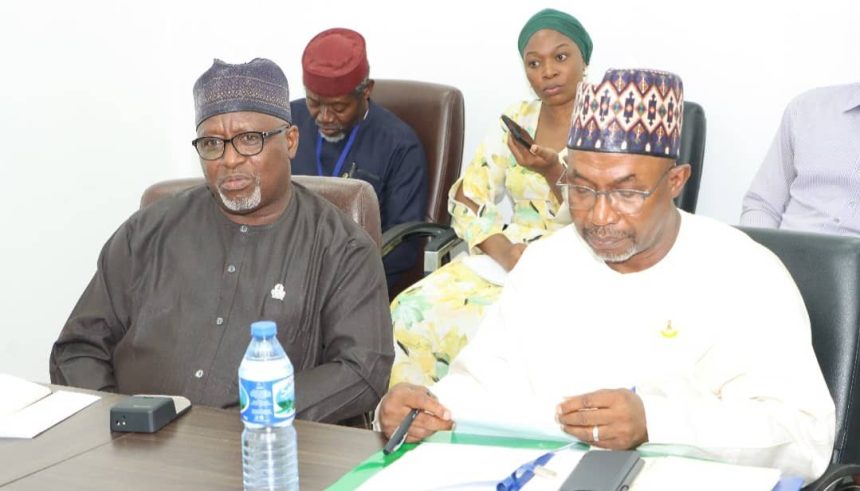By Angela Atabo
The Council for the Regulation of Engineering (COREN) and the Raw Materials Research and Development Council (RMRDC) will partner on processing of raw materials to meet standardisation for engineering and industrial use.
COREN President, Prof. Sadiq Abubakar, disclosed this during a courtesy call on Mr Emmanuel Kwaya, the Director-General, RMRDC, on Thursday in Abuja.
Abubakar said that the move was necessary to ensure that operational and production processes were reliable and consistent through standardisation.
The News Agency of Nigeria (NAN), reports that standardisation is an approach to production that ensures consistency in manufacturing processes to finished products.
It requires adhering to industry standards and certification requirements.
The COREN president said that the collaboration with RMRDC also sought to establish inventory of engineering-based organisations involved in exploring, acquisition and development into commodities and products for import substitution and export promotion.
He added that the council was seeking partnership with relevant stakeholders in terms of regulating registered and licensed practitioners involved in design and technology development for processing raw materials into products.
”Coming together to address challenges in the sector, to me , is one of the most effective ways to break the silos.
“So let us have a hand shake; form committee and carefully seat down to develop the terms of reference for the standing committee.
”This is because associations like engineers, technicians, craftsmen, artisans among others really need to come closer to see how we can promote this issue of materials.
”Collaborations are also necessary in various areas like accreditation and licensing of laboratories involved in analysis and certification of raw materials for industrial use.
”Championing the development of codes and standards that will promote the commercialisation and uptake of machineries for processing and value addition of raw materials into commodities and products is also key,’’ he said.
Abubakar said that enhanced synergy with relevant stakeholders to ensure effective raw materials exploration, acquisition, exploitation and development was important.
He added that partnering with relevant agencies in patenting, registration, upscaling, commercialisation and uptaking of products generated from raw material was another way of improving standards.
On his part, Kwaya said the council’s doors were open for collaborations that would help Nigeria achieve her industrial goals.
He commended COREN as a regulatory body for being alive to its responsibility of sanitising the sector.
Kwaya said that the council had a proven track record of fostering technological advancements through various programmes like engineering competitions, skills, setting up engineering teams to design software, applications development, and design initiatives.
”So COREN will be a very welcome partner in this regard; we are willing to collaborate to take these areas to a new level.
”One of the request we are making to some of our colleagues in other institutions of engineering is that most often when there are programmes we give them requests to assist in one way or the other.”
He said that engineers were needed to synergise to put teams together to solve some of the national problems and add value to Nigeria’s raw material.
According to him, some materials in the country are only unique to Nigeria and cannot be found anywhere else.
”There are crops we have in Africa that we don’t have anywhere else like acha and others; so we can’t leave the work to strangers because they will not be able to develop something from what they do not know.
”So there is a lot we need to do taking our colleagues in order institutions along so that when they come up with project proposals we can support them without headache.
”That way we will be solving our problems in this country and the institutions will be better funded; so it is a win-win for all of us,’’ he said
The director-general encouraged stakeholders to look inward to solve the nation’s problems.
He added that such attitude would prove to the government that Nigerian engineers were equal to the task of carrying out designs and implement them for national development like their counterparts in other climes. (NAN)












